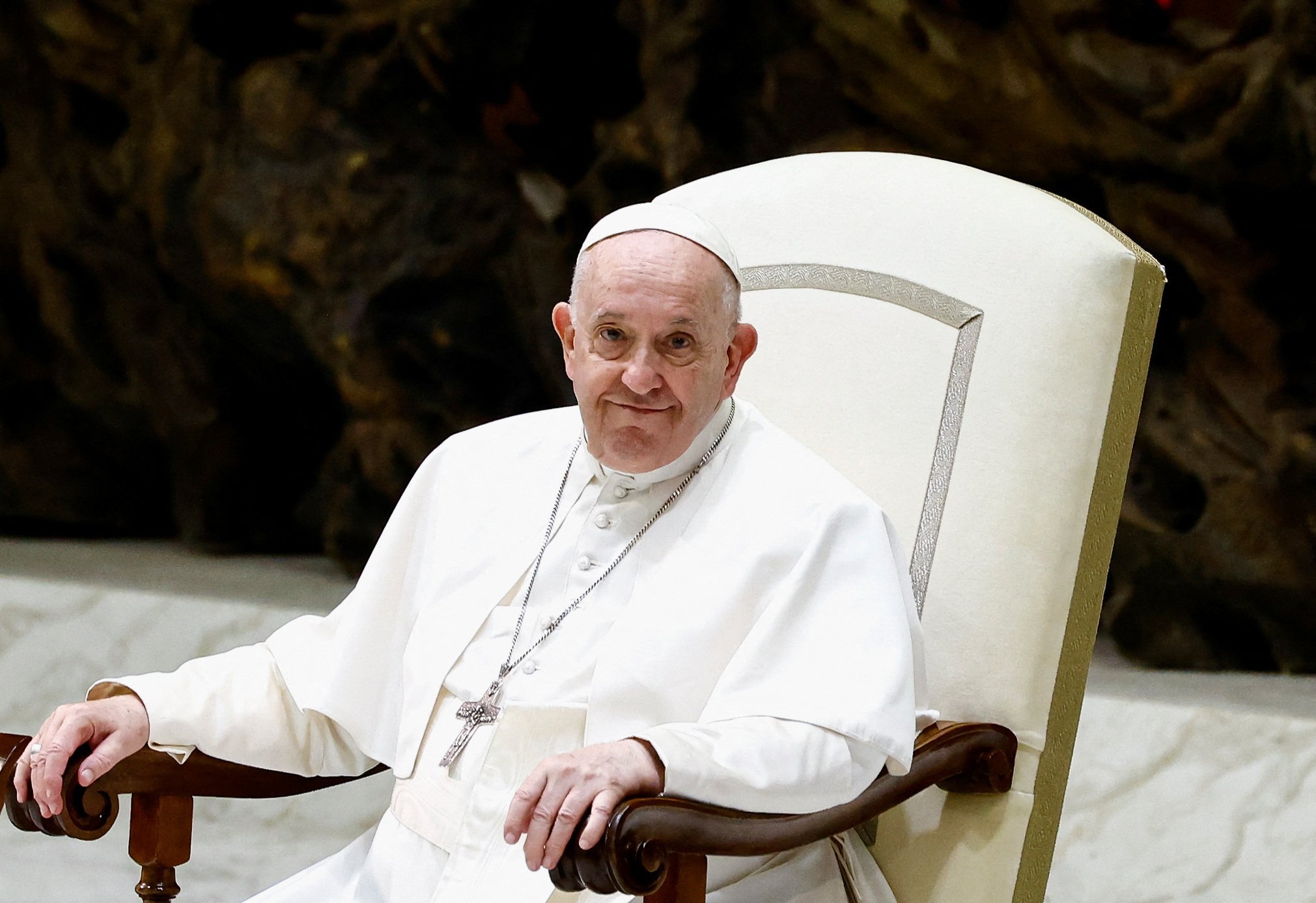Pope says there is a ‘strong reactionary’ element in U.S. Catholic Church
ROME — The Catholic Church in the United States has “a very strong reactionary” element that is well-organized and refuses to see how Catholic doctrine can and must grow and mature, Pope Francis told Jesuits in Portugal.
“I would like to remind those people that ‘indietrismo’ (being backward-looking) is useless, and we need to understand that there is an appropriate evolution in the understanding of matters of faith and morals,” the pope said in response to a question about U.S. Catholics during a meeting in Lisbon, Portugal, Aug. 5.
On most of his foreign trips, Pope Francis spent time with the local Jesuits, answering their questions. As is customary, the Rome-based Jesuit journal, La Civiltà Cattolica, published the transcript of the Lisbon encounter several weeks later, releasing it in Italian and English Aug. 28.
A Jesuit brother had told the pope he spent his sabbatical year in the United States and something that made “a great impression” on him was how many Catholics, including bishops, were “criticizing your leadership of the church.”
“In the United States the situation is not easy: There is a very strong reactionary attitude. It is organized and shapes the way people belong, even emotionally,” the pope responded.
“Those American groups you talk about, so closed, are isolating themselves,” Pope Francis said. “Instead of living by doctrine, by the true doctrine that always develops and bears fruit, they live by ideologies. When you abandon doctrine in life to replace it with an ideology, you have lost, you have lost as in war.”
The pope insisted there is a difference between haphazardly changing church teaching and growing in understanding.
As examples, Pope Francis said, “Today it is a sin to possess atomic bombs. The death penalty is a sin; you cannot employ it, but it was not so before. As for slavery, some pontiffs before me tolerated it, but things are different today.”
“So, you change, you change, but with the criteria” taught by St. Vincent of Lérins that it be “ut annis consolidetur, dilatetur tempore, sublimetur aetate” — consolidated by years, enlarged by time and refined by age, the pope said.
“In other words, doctrine also progresses, expands and consolidates with time and becomes firmer, but it is always progressing,” he said. “Change develops from the roots upward, growing in accord with these three criteria.”
“The view of church doctrine as monolithic is erroneous,” the pope said.
Another Jesuit, who works in campus ministry at a university, asked Pope Francis about his insistence at World Youth Day in Lisbon that there is room in the church for everyone and about how to respond to Catholics who identify as homosexual, want to be full and active members of the church, and yet do not feel in conscience that their sexual activity is sinful.
“Jesus is very clear about this,” the pope said. “The door is open to everyone; everyone has their own space in the church.”
The question becomes how the church can help each person “live so that they can occupy that place with maturity, and this applies to all kinds of people,” he said.
“What I don’t like at all,” he said, is that “we look at the so-called ‘sin of the flesh’ with a magnifying glass” and tend to ignore other sins. “If you exploited workers, if you lied or cheated, it didn’t matter, and instead (only) sins below the waist are relevant.”
The first church welcomes everyone, Pope Francis insisted, and then “the most appropriate pastoral attitude” is taken for each person.
“We must not be superficial and naive, forcing people into things and behaviors for which they are not yet mature, or are not capable,” he said. “It takes a lot of sensitivity and creativity to accompany people spiritually and pastorally. But everyone, everyone, everyone is called to live in the church. Never forget that.”
This article was written by Cindy Wooden, Catholic News Service.



